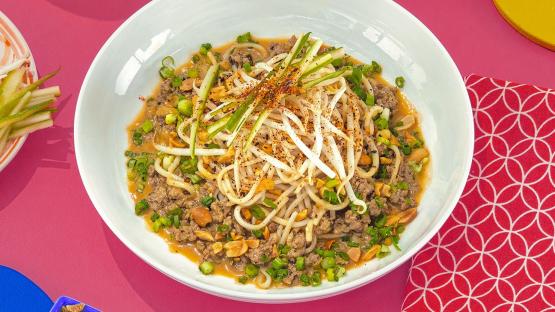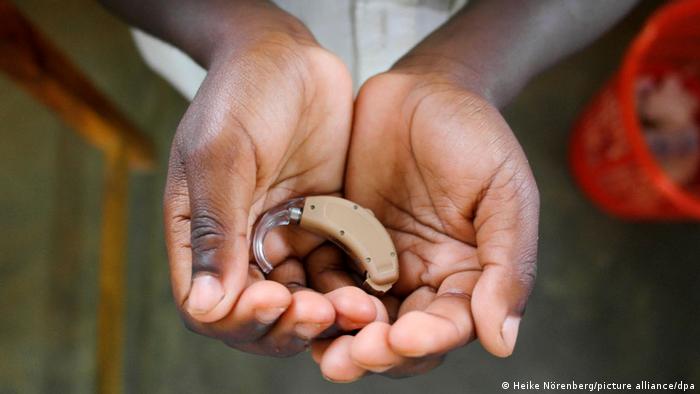Bean sprouts are a superfood. Jam-packed with essential vitamins, minerals, and antioxidants, these tender shoots can lower cholesterol, support health and may even give cancer a run for its money. Add them to salads, sandwiches, soups, and stir-fries to enjoy their crisp, fresh, crunch.
Bean sprouts are the edible shoots of various types of beans. They come in all shapes and sizes — from mung beans to lentils and more.
They’re a nutrient-rich, low-calorie food that can be added to many dishes. They’re also packed with fiber, vitamins, minerals, and antioxidants, and a great choice if you’re looking to give your diet a boost.
Continue reading to find out about bean sprout nutrition and health benefits, and why you should incorporate them into your meals.

Bean sprouts 101
Bean sprouts are, er, beans that have sprouted! Yep, they’re the sweet ‘n’ tender, crunchy, white shoots that pop out of beans or other legumes when they’ve been soaked in water and given a few days to germinate.
You can make them yourself at home or find them fresh at most grocery stores — just look for the long, thin stems with little white buds on the ends.
There are all sorts of bean sprouts each with its own nutritional perks, but some of the most common varieties include:
- Mung bean sprouts. These are the classic bean sprouts you often find in Asian dishes like summer rolls, chow mein or Pad Thai.
- Lentil sprouts. A little nuttier than other bean sprouts, these babies pack a serious nutritional punch.
- Chickpea sprouts.Nutty and slightly sweet, chickpea sprouts are perfect for adding to wraps or grain bowls.
- Kidney bean sprouts. These earthy-tasting sprouts are perfect for giving a flavor boost to soups and stews.
- Pea sprouts. A delicate, slightly sweet sprout, pea sprouts are lovely in salads or as a garnish.
Bean sprouts nutrition
Not only are they delicious, but bean sprouts are healthy. They’re loaded with vitamins and minerals. Plus, they’re a great source of plant-based protein and fiber. And if that’s not enough to convince you to start sprinkling them on everything, bean sprouts are also incredibly low in calories.
Let’s take a closer look at the nutritional value of 100 grams (g) of mung bean sprouts.
Health benefits of bean sprouts
In addition to being a low-calorie, nutrient-dense food, packed with vitamins and minerals, bean sprouts offer a host of other health benefits.
Lower cholesterol
Cholesterol is a type of fat that’s found in the blood. Although you need some cholesterol for your body to function properly, too much cholesterol can increase your risk of heart disease. But don’t worry, bean sprouts can help.
A 2015 study found that consuming lentil sprouts could lower bad cholesterol, and increase good cholesterol in peeps with type 2 diabetes.
Could reduce cancer risk
Mung bean sprouts contain bioactive compounds, like polyphenols, polysaccharides, and peptides that could help prevent cancer.
Lab studies on cells show that the goodies found in mung beans can slow the growth of certain cancer cells, including breast, ovarian, prostate, and digestive system cancers.
May reduce inflammation
Preliminary studies show that mung bean sprouts contain powerful antioxidants that can stop inflammation in its tracks.
Chronic inflammation is a key factor in many diseases, including heart disease, cancer, and arthritis. So keeping it on the down low is good for your health.
Manage blood sugar
Sprouting beans boosts their sinapic acid content. This acid has various health-supporting superpowers, including improved blood sugar control.
Animal studies have found that sinapic acid helps lower high blood sugar levels and combats insulin resistance in rats with diabetes. Yes, that’s a thing!
Aid digestion
Bean sprouts are full of insoluble dietary fiber. Insoluble fiber acts like a broom, brushing away waste and toxins from the intestines to keep your digestive system running smoothly.
You need plenty of insoluble fiber to keep your gut healthy and help you stay regular. So, if you’re feeling a little backed up, adding bean sprouts to your diet could be just the thing to get things moving again.
How to prepare bean sprouts
Bean sprouts are so easy-peasy to prepare! All you need do is give them a good wash and that’s it. You can then sprinkle those bad boys raw on any dish. Yep, sandwiches, salads, soups, and stir-fries are all fair game for bean sprouts.
If you prefer, you can cook your bean sprouts. Just give ’em a quick stir-fry in some sesame oil and garlic for a few minutes. Or if you prefer, steam them until they’re just tender and then sprinkle them with a bit of salt or soy sauce. Then add them to your favorite curries, fried rice, quinoa bowls, or burgers. They add texture and chewiness. The possibilities are endless!
Risks of eating bean sprouts
Though bean sprouts are a healthy addition to your diet, there are some potential risks associated with these little legumes.
If you’re allergic to beans or peanuts, be careful. Because you’re allergic to one member of the legume family, you could react to another. This is called cross-reactivity, and it happens when the proteins in one food resemble those in another and trigger an allergic reaction.
Also, if you have a weakened immune system or are pregnant take care with bean sprouts. Since they grow quickly in warm, humid environments, they can be susceptible to bacteria like E. coli, Listeria, and Salmonella. So make sure to wash them thoroughly and cook before eating.
Takeaway
Bean sprouts are a powerful superfood, packed with essential vitamins, minerals, and antioxidants that can have a big impact on your health.
For maximum nutrition, add bean sprouts to salads, sandwiches, and soups. Or spice them up with a quick stir-fry in sesame oil and garlic. Although they can harbor bacteria, cooking them gives you extra insurance against contamination.
So if you’ve bean thinking about adding bean sprouts to your diet, go for it. Turn on, tuck in, sprout out.




